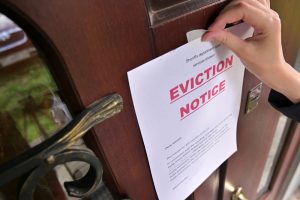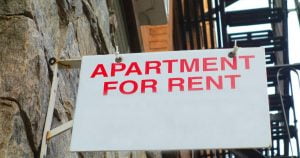Can A Landlord Ask You To Vacate For No Reason?
Go Back To Previous PageIt’s important to note that a landlord cannot ask you to vacate without a valid reason. However, if you have a month-to-month lease, the landlord can ask you to leave if they give you proper notice. If they want to force you to vacate, they must follow the legal procedures and try to evict you.
you proper notice. If they want to force you to vacate, they must follow the legal procedures and try to evict you.
Can A Landlord Evict You For No Reason?
Landlords cannot evict tenants for no reason. In every state across the USA, landlords must provide a valid reason for evicting a tenant, such as nonpayment of rent, violating lease terms, or engaging in illegal activities on the leased property. Any of these reasons can result in the legal eviction of a tenant. Furthermore, tenants who remain on the property after their lease has expired may face eviction if they do not vacate promptly.
It is important to note that some local jurisdictions permit “no-cause” or “no-fault” evictions, which means that a landlord can end a lease without giving any specific reason. Therefore, it is crucial to consult the local laws that govern the relationship between a landlord and a tenant in the event of an eviction.
Reasons to Evict A Tenant / Terminate A Lease
Nonpayment of rent, engaging in illegal activity, harboring unauthorized pets, or allowing unauthorized roommates are all prohibited.
1. Nonpayment of Rent
The primary reason for evicting a tenant is usually nonpayment of rent. If a tenant fails to pay rent on the agreed-upon date or during the grace period, a landlord may decide to terminate the lease and initiate the eviction process.
New York, rent is late if not paid by the due date. However, the lease/rental agreement may allow a more extended grace period.
Before a landlord can try to evict a tenant for nonpayment of rent, they must send a letter to the tenant via certified mail. Sending an email is not sufficient. This letter must be sent five days after the due date to inform the tenant that the landlord has not received the rent yet. If the tenant confirms that the rent is still unpaid or does not reply, the landlord can proceed with a written 14-day Notice to Pay to begin eviction.
If the tenant pays the rent or moves out of the property within fourteen days, the eviction process stops. However, if they still haven’t paid rent and continue living in the property by the end of the fourteen days, the landlord can continue with the eviction lawsuit.
See N.Y. Real Prop. Acts § 711(2)
2. Engaging in Illegal Activity
Landlords can terminate a lease and evict tenants for illegal activities, such as drug use.
In New York, if a tenant is found to have engaged in illegal behavior within the property, the landlord is not required to provide them with a written notice before initiating the eviction process. The landlord can proceed with the eviction process immediately.
Examples of illegal activities that could warrant eviction include involvement in the creation, distribution, or consumption of illicit drugs, domestic abuse, or prostitution. Regardless of whether the tenants correct the violation, they cannot stay on the property once the court decides.
Therefore, landlords should monitor their tenants closely to identify and promptly address illegal behavior.
3. Harboring Unauthorized Pets
Pets are not allowed unless they are authorized in the rental agreement. Inform the landlord before introducing pets to the property.
4. Allowing Unauthorized Roommates
The leased space can only be occupied by tenants who have signed the lease or have been approved by the landlord. Unauthorized tenants can result in lease termination.
5. Violation of the lease/rental agreement
The tenant and landlord are responsible for upholding the rental/lease agreement throughout the tenant’s stay. The agreements may differ from tenant to tenant.
If the tenant violates the rental/lease agreement terms, the landlord must issue a 10-day Notice to Comply. However, if the tenant resolves the issues within the specified time frame, the eviction process will not continue.
Lease violations may include damaging the rental property, repeated public disturbances, smoking in non-smoking areas, keeping pets in pet-free properties, etc.
If the tenant fails to resolve the violations within the initial ten days, the landlord must give them a second notice, called a 30-day Notice to Quit. This notice informs the tenant that they must vacate the property, as they can no longer resolve the violations.
The eviction process will proceed if the tenant continues to live in the rental property after thirty days.
When Can A Landlord Terminate A Lease?
As a landlord, you can terminate month-to-month and long-term leases early if any part of the rental agreement has been violated. Examples of lease violations that could lead to lawful termination include nonpayment of rent, engaging in illegal activity on the premises, and breaking the lease terms.
It is essential to thoroughly read and understand the lease agreement to understand all the violations that can result in a lease’s termination.
When can a landlord terminate a lease? It depends on whether it’s month-to-month or long-term.
Month-To-Month Leases
A month-to-month lease is a rental agreement between a landlord and a tenant that doesn’t have a fixed end date. Instead, the lease renews every month until one of the parties provides proper notice to terminate the agreement.
The lawful termination of a month-to-month leasing contract varies between states. In most cases, a landlord must provide a minimum of 30 days’ notice before evicting a month-to-month tenant. However, some states, including Georgia, require a notice period of up to 60 days.
In most states, tenants must also provide a 30-day notice to terminate their lease. Neither party can lawfully end the lease without proper notice.
Long-Term Leases
Long-term leases differ from month-to-month leases in that they have a specific end date, usually either 6 or 12 months from the start date. Unlike month-to-month leases, long-term leases do not automatically renew at the end of the contract. The tenant must sign a new rental agreement to remain on the property.
At the end of a long-term lease, the landlord may decide not to rent the property anymore. Generally, no specific notice is required for non-renewal of a lease.
When a landlord wishes to end a lease early, they must typically provide a 30-day notice and a valid reason for terminating the contract.
Can A Landlord Evict You Without A Court Order?
In most states, forcible evictions of any kind are considered unlawful. This includes physically removing a tenant from a rented property, changing locks, or any other forceful act. Such actions can sometimes lead to a tenant winning an eviction lawsuit.
To evict a tenant, a landlord must follow local court laws, which can take weeks to months.
Can a Landlord Evict You For No Reason? Bottom Line
In most cases, a landlord cannot end a rental agreement or evict a tenant without proper cause. The rule may vary based on jurisdictional exceptions, but generally, if you are involved in a long-term or month-to-month lease, the landlord can only cite proper cause for eviction.
In this case, adequate cause refers to violating lease terms, including nonpayment of rent, engaging in illegal activities, or other term violations.


